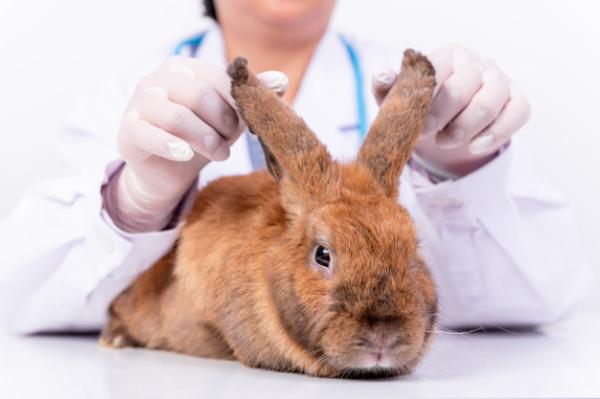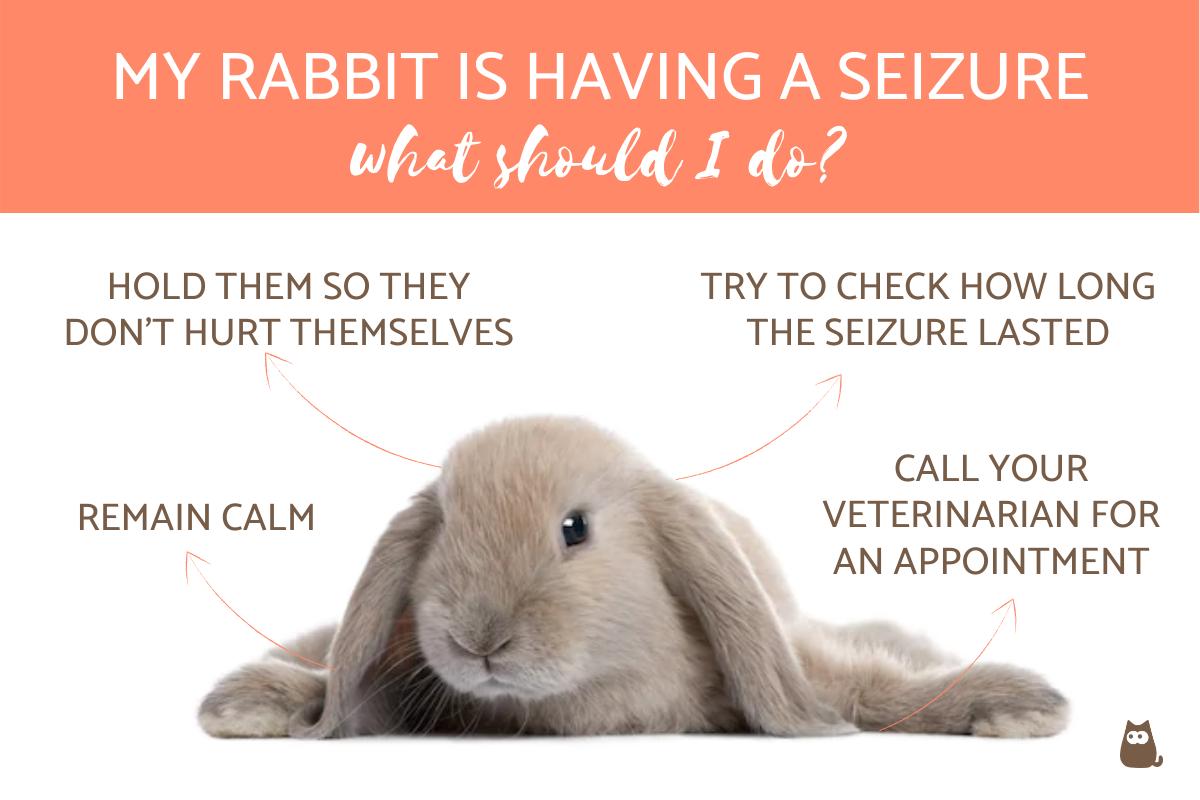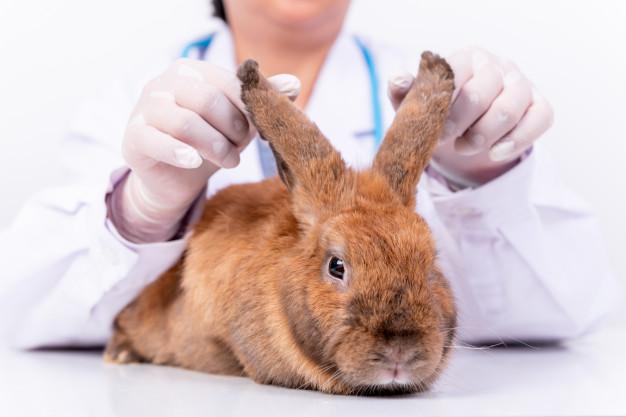My Rabbit Is Having a Seizure, What Should I Do?



See files for Rabbits
Did your rabbit have a seizure? Read this AnimalWised article to learn about what you should do if your rabbit is having a seizure.
We also talk about symptoms, causes, diagnosis and treatment for seizures in rabbits and epilepsy in rabbits.
Seizures in rabbits
Just like humans, rabbits can also have seizures or even suffer from epilepsy. Seizures occur when certain neurons reach a high level of “excitability”, leading the body to do involuntary movements. Unfortunately, your rabbit may suffer from brain damage during these seizure.
Are seizures common in rabbits?
No, not at all. However, as we will explain below, there are certain rabbit breeds that are prone to seizures. Regardless of their breed and although uncommon, any rabbit can suffer from a seizure.
If your rabbit does suffer from a seizure, it's important that you take them to the veterinarian right away to be properly diagnosed and treated. You may also be interested in our article about the most common diseases in rabbits.

Symptoms of seizures in rabbits
Symptoms of seizures or epilepsy in rabbits include:
- Shaking of the body
- Breathing fast
- Rolling of the body and signs of distress
- Paddling of the hands or limbs
- Mental confusion
- Disorientation
- Blindness
- Head tilt
- Loss of muscle tone
- Thick, white and creamy fluid or pus found in their ear
- Fainting (rare in rabbits)
If you're not sure whether or not your rabbit had a seizure, it's best to take them to the veterinarian to be sure. It's important for your veterinarian to determine why your rabbit had a seizure, as well as know if it was merely one seizure or if your rabbit is actually suffering from epilepsy.
Causes of seizures in rabbits
Many rabbit companions ask themselves why their rabbit is having seizures. There are many causes for seizures or epilepsy in rabbits. They are the following:
- Metabolic causes, such as low blood sugar
- Toxicities, including exposure to heavy metals and other chemicals
- Cardiovascular diseases
- Genetic caused epilepsy
- A head injury leading to brain damage
- Structural causes, such as brain lesions, bacterial infections or parasitic infection
Lastly, certain breeds are more prone to seizures or epilepsy than others. Some of them include dwarf breeds, lop-eared rabbits and white or blue-eyed rabbits.
What you should do if your rabbit is having a seizure
If you are present when your rabbit is having a seizure, here is what you should do:
- Stay calm
- Hold your rabbit gently but firmly so they do not hurt themselves
- Check the time (if you can) as most seizures last less than one minute
- Take them to the veterinarian for a proper diagnosis
Once the seizure has occurred, contact your veterinarian and let them know what happened. Ask for an appointment so your rabbit can be properly diagnosed and treated.
Diagnosis of seizures in rabbits
To diagnose your rabbit, your veterinarian will carry out laboratory tests looking for structural brain lesions or seizure-causing toxins. They will also carry out blood tests to identify any diseases or infections. And, lastly, they will perform imaging, such as an MRI or CAT scan. This way, they'll be able to detect any lesions, tumors or inflammation in the nervous system.
By diagnosing your rabbit, your veterinarian will be able to determine whether it was just one seizure or whether or not your rabbit has epilepsy. They will also be able to determine what exactly caused the seizure in your rabbit. By knowing this, they can then choose the correct treatment for their condition.

Treatment of seizures in rabbits
The treatment will depend on the diagnosis. Where some rabbits will need more supervision and may even need to be hospitalized in order to relieve the attacks and prevent permanent brain damage, others will be prescribed benzodiazepine medication.
This medication can slow down the seizure activity. In some cases, the veterinarian will also prescribe antibiotics. In the most serious cases, the veterinarian may prescribe steroid medications. However, these are always given under veterinarian supervision.
If you've found this article useful, you may also be interested in our video about caring for a rabbit.

This article is purely informative. AnimalWised does not have the authority to prescribe any veterinary treatment or create a diagnosis. We invite you to take your pet to the veterinarian if they are suffering from any condition or pain.
If you want to read similar articles to My Rabbit Is Having a Seizure, What Should I Do?, we recommend you visit our Neurological diseases category.
- S.I. Chowdhury, B.J. Lee, D. Mosier, J-H. Sur, F.A. Osorio, G. Kennedy, M.L. Weiss. (1997). Neuropathology of bovine herpesvirus type 5 (BHV-5) meningo-encephalitis in a rabbit seizure model, Journal of Comparative Pathology. https://doi.org/10.1016/S0021-9975(97)80078-3.
- Prabhundha Vanasupa, Sidney Goldring, James L. O'Leary. (1959). Seizure discharges effected by intravenously administered convulsant drugs: EEG and DC changes in Cerebrum and Cerebellum of the Rabbit, Electroencephalography and Clinical Neurophysiology. https://doi.org/10.1016/0013-4694(59)90011-2.







